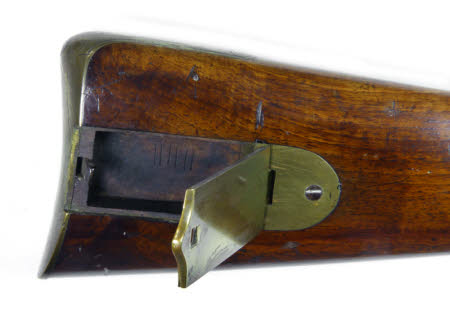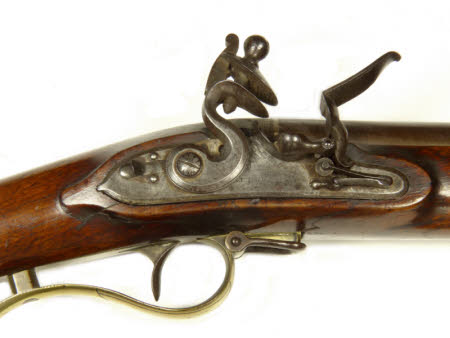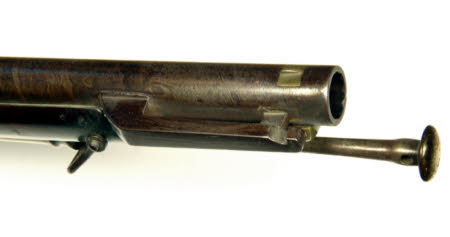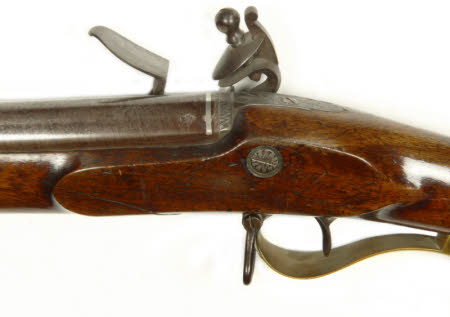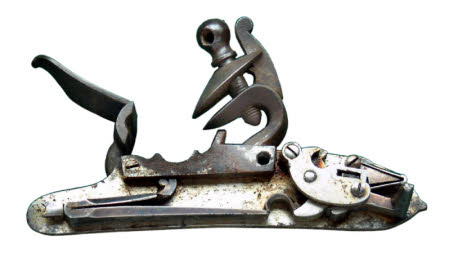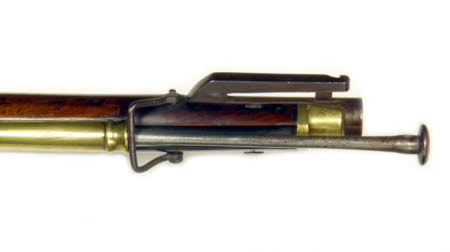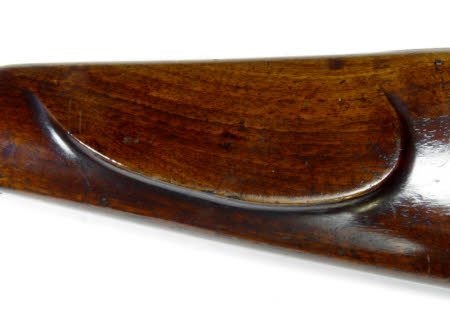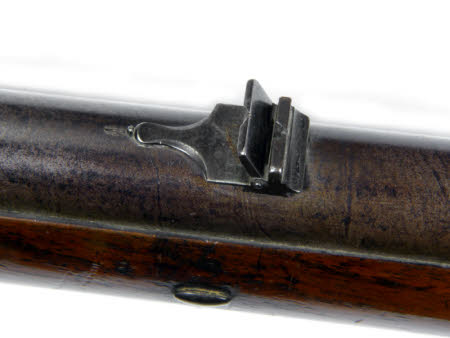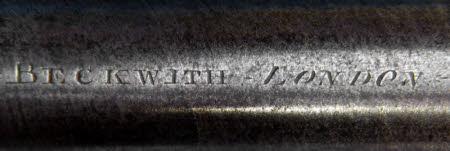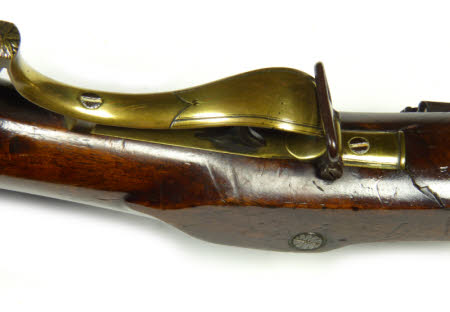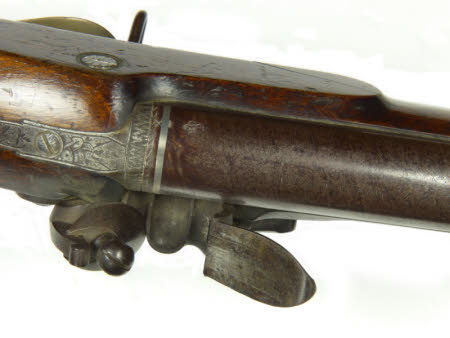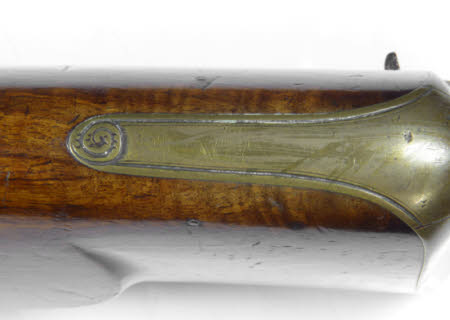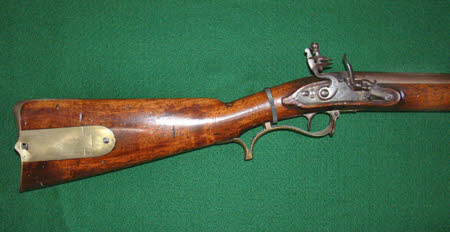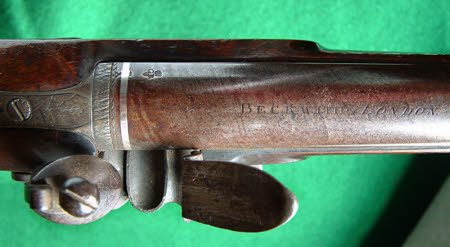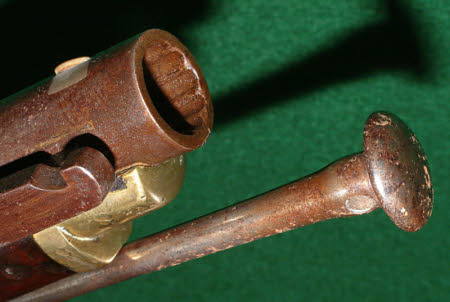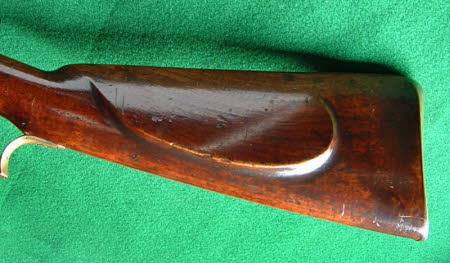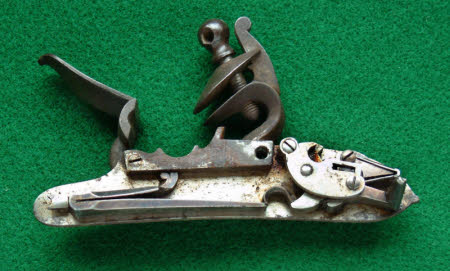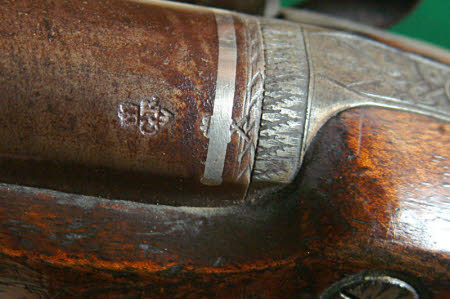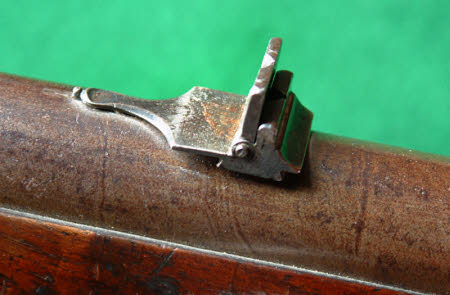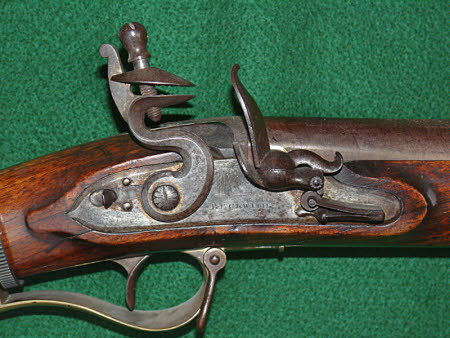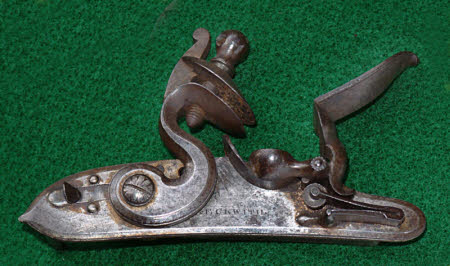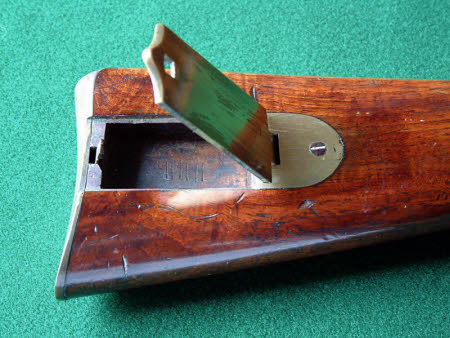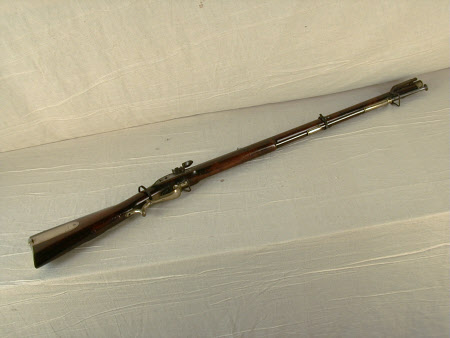Flintlock rifle
William Andrew Beckwith (fl.1785 - 1841)
Category
Arms and armour
Date
circa 1810 - circa 1830
Materials
Brass, Iron, Wood
Measurements
length 1145 mm
Place of origin
London
Order this imageCollection
Dyrham, Gloucestershire
NT 452104.1
Summary
Gun; Flintlock "Baker Pattern" rifle by W.A. Beckwith. London, c.1830
Full description
Flintlock "Baker" rifle, a copy of the British Army “Baker-pattern” Infantry rifle, made to private order by William Beckwith of London, probably during the 1830s. The quality of this rifle and two others at Dyrham far exceeds that of Government issue Baker rifles and includes refinements such as decorative engraving. However, it would appear that Beckwith has used some Government issue Baker elements in the construction of these rifles such as the barrels and brass patchboxes. Beckwith is known to have supplied Baker rifles to the Ordnance during the 1830s. It is thought that the Baker rifles at Dyrham are part of equipment supplied by the Blathwayt family to equip a local militia. William Andrew Beckwith, gunmaker (fl.1801 – 1841), Skinner St, Snow Hill, London. Rifled iron barrel of Damascus-twist construction, rounded in form, with a false breech. The breech is stamped with Ordnance proof marks and is signed BECKWITH, LONDON. It is also inset with a platinum line and the barrel has a platinum lined touch-hole. The standing breech and tang are engraved. There is a brass blade fore-sight and the rear sight with 1 folding leaf, has a decorative finial. The muzzle has bayonet mounting bar. The barrel is retained to the stock by 3 barrel slides. The steel ramrod has a large dome-shaped head. Barrel length: 76.7cm Calibre:16mm Walnut full stock, the left side of the butt formed with a cheek rest. Brass furniture (with some engraving) comprising; butt plate, trigger guard with finger rest, iron sling loop and shaped forward finial, a butt-trap (right side butt) with hinged cover (marked Tower on the inside), a nose-cap and 2 ramrod pipes, the forward pipe with a flared mouth. There a sling loops at the fore-end. Flintlock - the flat lockplate with bevelled edges, engraved with a sun-burst and signed BECKWITH. There is a sliding bolt safety catch behind cock. The cock, frizzen and most internal parts of the lock are missing. The lock is retained to the stock by 1 sidenail. Overall length: 116.2cm Source/Reference: H.L.Blackmore, Dictionary of London Gunmakers 1350 - 1850, London 1986 D.W. Bailey, British Military Flintlock Rifles 1740 - 1840, USA 2002
Provenance
Indigenous collection purchased by Ministry of Works in 1956 and given to National Trust in 1961.
Marks and inscriptions
Barrel : Beckwith, London Lock: Beckwith
Makers and roles
William Andrew Beckwith (fl.1785 - 1841), gunsmith
References
Blackmore, 1986: Howard Blackmore: A Dictionary of London Gunmakers 1350-1850 Blackmore, 1961: Howard Blackmore, British Military Firearms 1650 - 1850
